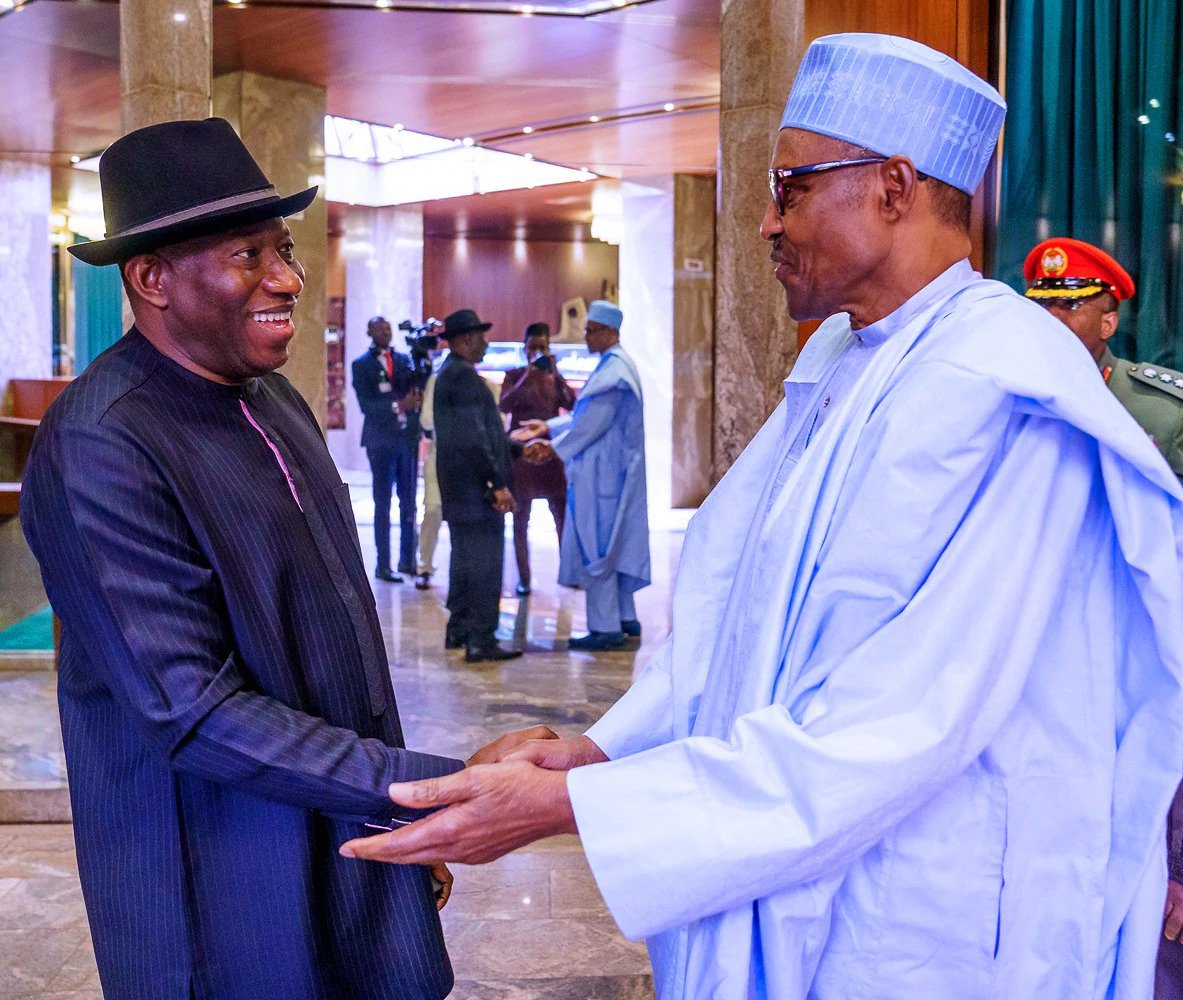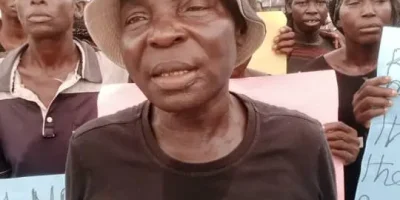Abiodun OBA
The former President, Dr Goodluck Jonathan, is eligible to contest the 2023 presidential election.
Justice Isa Hamma Dashen, of Federal High Court sitting in Yenagoa, Bayelsa State, who gave the judgement on Friday in a suit marked FHC/YNG/CS/86/2022 also held that Jonathan’s right to vie for the office of president again cannot be stopped by any retroactive law.
The suit was filed by Andy Solomon and Idibiye Abraham as first and second plaintiffs and listed Jonathan, the All Progressives Congress, and the Independent National Electoral Commission as first, second, and third defendants respectively.
But the APC and the INEC did not have any legal representations in the matter.
Solomon and Abraham, who are believed to be members of the APC, had approached the court through their counsels, Egbuwabi Seigha and Timi Robinson, seeking the disqualification of Jonathan from the 2023 presidential polls.
They argued that by virtue of the introduction of Section 137 sub-sections 1(b) and 3 of the 1999 Constitution of Nigeria as amended, the former president was no longer eligible to vie for the office of the president because he had taken an oath to that office on two previous occasions.
Delivering judgement on the matter on Friday, Justice Dashen dismissed the reliefs sought by the plaintiffs and held that the swearing of Jonathan as acting president on May 6, 2010, after the death of President Umaru Musa Yar’Adua, was a constitutional provision.
According to him, the 2007 general elections produced the late Yar’Adua as president and not Jonathan, stressing that Section 137 could not have a retroactive effect to stop him from contesting the forthcoming presidential polls.
Dashen ruled that there was no presidential election conducted in the country in 2010 and Jonathan could not be deemed to have been sworn into the office of the president that year.
He said that Section 137, which came into effect on June 7, 2018, following the fourth alteration to the constitution, “cannot apply retrospectively except the legislature in clear terms expressly stated their intention for it to be so.”
The judge rationalised if Jonathan had won his re-election bid in the 2015 general polls, in which he lost to the incumbent President, Major General Muhammadu Buhari, he would have been inaugurated as president without any legal impediment.
He said, “In my opinion, the position being propounded by the first defendant (that he is eligible to contest) is tenable. It is the duty of the plaintiffs to direct this court where the legislature stated that the provisions of Section 137 sub-section 3 of the Constitution are to apply.
“I, therefore, find the arguments of the first defendant that he has only been elected into the office of President of the Federal Republic of Nigeria only once and in the year 2011, not only irresistible but established, and I so hold.
“In law, he who asserts must prove. I find that the plaintiffs have not discharged the burden of proof placed on them by law. I, therefore, find merit in the argument of the first defendant that the introduction of Section 137 of the Constitution does not affect his right to contest for the office of President of the Federal Republic of Nigeria in the 2023 general elections.
“Before the year 2015 when the first defendant lost his re-election bid into the office of President, the restriction by Section 137 sub-section 3 was not in existence. If he had won the 2015 general elections, he would have been sworn in for the third time without any legal impediment.
“The first defendant acquired his right to contest for the office of President immediately after his term as president on May 29, 2015. Clearly, it is incontrovertible that the first defendant’s right to contest and be sworn in as president was vested in him on May 29, 2015, and I so hold.”
Dashen further held, “I declare that the provision of 137 sub-section 3 of the Constitution acquired the force of law with effect from 7th June 2018, and as such does not have retrospective application.
“I also declare that the first defendant is not disqualified by the provision of Section 137 sub-section 3 of the Constitution from contesting for election into the office of President of the Federal Republic of Nigeria in the 2023 general elections.
“Consequently, I enter judgment for the first defendant, and all the reliefs sought by the plaintiffs in their originating summons dated 16 May 2022 and filed on 17 May 2022 are all hereby dismissed.”
He, however, ruled against the argument of the lawyer to Jonathan, Eric Omare, that the plaintiffs had no locus standi to challenge the former president’s eligibility in a court of law.
Reacting to the ruling in an interview with journalists, the plaintiffs’ counsel, Seigha, said that they believed that the introduction of Section 137 sub-sections 1(b) and 3 in the constitution “is the law now.”
He said, “We challenged the eligibility of Dr Goodluck Jonathan. We canvassed our position before the court that he is no longer eligible (to contest for presidency) by the introduction of Section 137 sub-sections 1(b) and 3 because he had taken the oath to the office of President twice.
“By the introduction of sub-section 3, which is the law now, it is our position that under the law as it is, he is going to be screened for the elections coming in 2023.
Seigha also that they approached the court seeking Jonathan’s disqualification because he had ruled the country with integrity and dignity, “and we also do not want a situation where he would come to transgress the law for so much integrity he had worked hard to acquire and will be allowed to slip into an error.”
He, however, added that they would get a copy of the judgment and study it critically with a view to heading to the Court of Appeal.
The former president’s counsel, Omare, expressed delight that “The court agreed with us and held that President Goodluck Jonathan is qualified to contest the 2023 general elections.”
Omare said he and his team were prepared to meet the plaintiffs at the Court of Appeal, adding that they were waiting to be served the processes of the appeal.








Comments